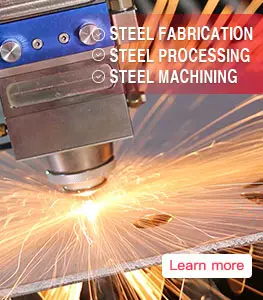Welcome to BBN Steel Materials Factory
What is the strength of 40Cr alloy steel?

40Cr alloy steel is a type of steel that contains a variety of alloying elements to enhance its properties, including chromium (Cr), which is primarily responsible for its high strength. The alloy also consists of carbon (C), manganese (Mn), silicon (Si), phosphorus (P), sulfur (S), and other elements, which contribute to its overall mechanical properties.
The strength of GB/T 40Cr alloy steel is determined by a number of factors, including its chemical composition, microstructure, and processing conditions. The alloy is typically quenched and tempered to achieve a high level of strength and hardness. Quenching involves rapidly cooling the heated material in water or oil, while tempering involves heating the previously quenched material to a lower temperature to reduce its brittleness and increase its toughness.
The mechanical properties of 40Cr alloy steel depend on the specific heat treatment and processing conditions used. Some of the key strength properties of 40Cr alloy steel include:
• Tensile strength: This refers to the maximum amount of stress that the material can withstand before breaking under tension. The tensile strength of 40Cr alloy steel can range from 980 MPa to 1180 MPa, depending on the specific heat treatment used.
• Yield strength: This is the amount of stress that the material can withstand without undergoing permanent deformation. The yield strength of 40Cr alloy steel typically ranges from 640 MPa to 840 MPa.
• Impact strength: This refers to the ability of the material to withstand shock and impact loading without fracturing. The impact strength of 40Cr alloy steel can range from 9 J to 27 J, depending on the processing conditions used.
• Hardness: This is a measure of the material's resistance to deformation, usually by indentation. The hardness of 40Cr alloy steel can range from 170 HV to 220 HV, depending on the specific heat treatment.
40Cr alloy structure steel has excellent strength and toughness properties, making it a suitable material for a variety of applications. Its high tensile strength and yield strength make it ideal for use in high-stress applications such as structural components, gears, axles, and springs. Its hardness and impact strength make it ideal for use in high-wear applications such as cutting tools and machine parts.
40Cr alloy steel also exhibits good machinability, weldability, and corrosion resistance. These properties make it a versatile material that can be easily fabricated and used in a wide range of applications. the high strength of 40Cr alloy steel makes it more difficult to form and shape than lower-strength materials. This can increase production costs and may make it unsuitable for certain applications where complex shapes are required. 40Cr alloy steel remains a popular material choice for many industrial applications due to its excellent strength and toughness properties. Its versatility and affordability make it a cost-effective alternative to other high-strength materials such as titanium and stainless steel.
.webp)
.webp)
.webp)
.webp)
.webp)
.webp)
.webp)
.webp)
.webp)



Leave a Message